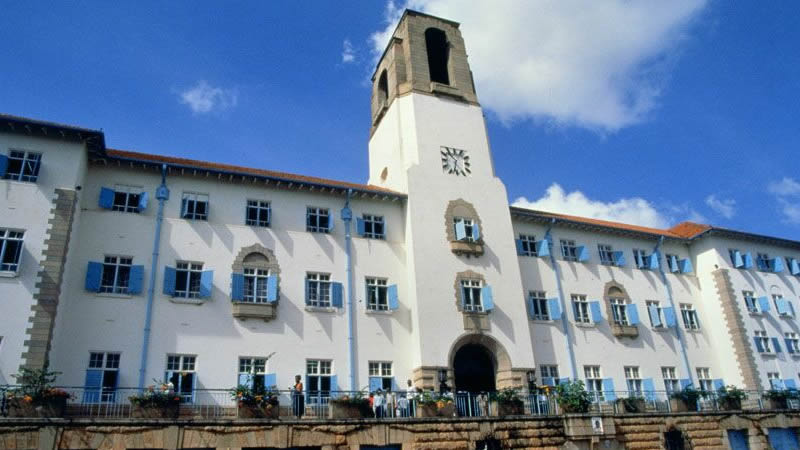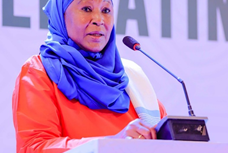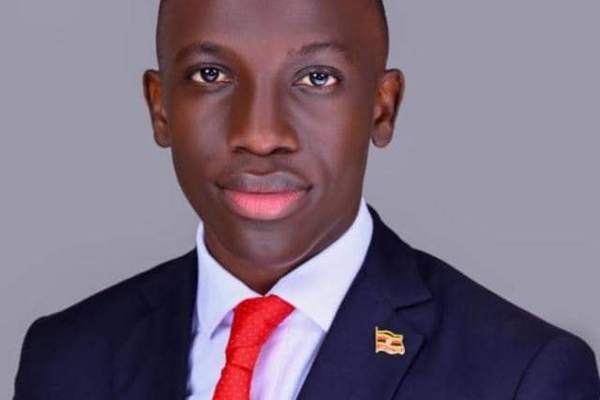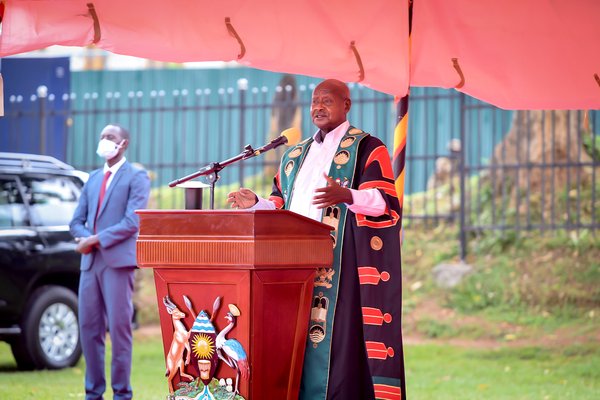By Aaron Oguttu
In their search for solutions to the development problems of Africa in general and the East African region in particular, stakeholders such as politicians and researchers have often ignored or downplayed the question of languages, linguistics, and other socio-cultural resources. This problem is further compounded by the sheer multiplicity and complexity of languages and cultures in Africa which is often seen as a hindrance to the development of the continent. However, over the past few decades, it has become clear that empowering communities through culture, language, and linguistics research is crucial to sustainable development. More so in the current context where researchers in the region either seem disinterested or have inadequate capacity.
It is against this background that the 3rd Language Association of Eastern Africa (LAEA) Conference was organized at Makerere University. This year’s theme was “Empowering Communities through language research and African Linguistics for sustainable development”. It focused on combining discourse analysis with relevant scientific and sociolinguistic transformations of society and the need for technological and economic advancement in post-colonial Africa.
The two day event was organized by a local committee of 17 led by Prof. Edith Natukunda Togboa. Prof. Josephine Ahikire, the Principal of the College of Humanities and Social sciences (CHUSS) opened the conference by sharing that despite the many heavyweights in languages, linguistics and literature already in place, Africa is language rich but poor in cashing in on them. She made this critical comment in line with the LAEA 2023 theme that aims at making languages relevant to sustainable development.
“Let us add the knowledge of research on English or Mandarin or French, these will provide information for interventions to revitalize endangered languages and give strength for investing in our multilingual proficiency and communication” Ahikire added. She made her closing remarks by alluding to Chinua Achebe who proclaimed that “..it is not necessary for black people to invent a great fictitious past to justify their human existence and dignity today. What they must do is recover what belongs to them.”
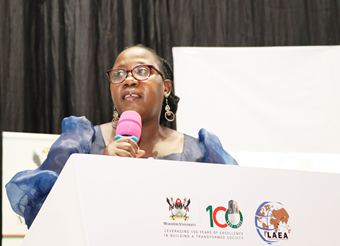
Prof. Josephine Ahikire, the Principal of CHUSS delivered opening remarks at the 3rd LAEA conference.
Dr. Susan Nyaga Anzuruni, the Director for SIL’s Institute for the Development of Languages and Translation in Africa and a research associate in the Department of general linguistics at Stellenbosch University mentioned that “…over 2000 of the world’s languages are spoken on the African continent. The commonly held view on the continent is that certain languages cannot be used to express concepts adequately especially in science and technology. Across Africa, the idea persists that the international languages of wider communication are the only means for upward mobility” she stated.
She further stressed that statistics show that only 10-15% of the African population are fluent in international languages despite their continued overuse as official languages which means that Africa consumes sometimes uncritically, information and knowledge produced elsewhere through languages unknown to the majority of its population.
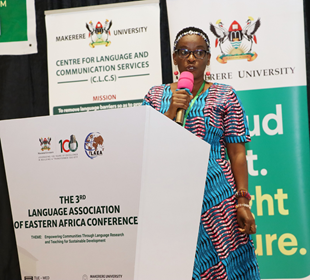
Dr. Susan Nyaga-Anzuruni delivering her keynote address at the 3rd LAEA Conference
Dr. Alena Witzlack-Makarevich, a senior lecturer at the Hebrew University of Jerusalem, whose work revolves around capturing, describing and explaining linguistic diversity presented a paper on insights and best practices gained from documentation and description projects of three languages, namely; Tuu, Khoekhoe, Luruuli.
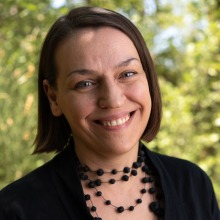
Dr. Alena Witzlack-Makarevich, a senior lecturer at the Hebrew University of Jerusalem.
The three languages have very different documentation, description, and development histories and status. She added that the first descriptive attempts at Khoekhoe for example range back to the 16th century.
The successful LAEA conference generally had discussions on the resourcefulness of languages, both local and global, and the growth of linguistics research areas in view of the on-going transformation of African societies. This offered a broad interdisciplinary scientific approach to the linguistic dimensions of sociocultural modernization and economic development in Africa.
Related News
![]() Please join hands with the Makerere University Endowment Fund as it works towards attracting & retaining the best faculty, providing scholarships, and investing in cutting-edge research and technology.
Please join hands with the Makerere University Endowment Fund as it works towards attracting & retaining the best faculty, providing scholarships, and investing in cutting-edge research and technology.
